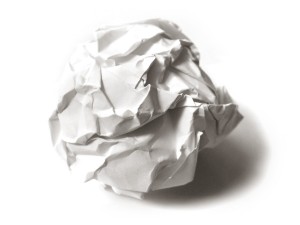 I recently came across a scrap of paper written after correcting a bundle of unseen poetry tests. I may as well commit it to virtual paper before dumping it.
I recently came across a scrap of paper written after correcting a bundle of unseen poetry tests. I may as well commit it to virtual paper before dumping it.
You need to remember the following:
- A quality response here will get you a lot more marks than sheer quantity.
- Divide your time equally between questions. Students often opt to answer two 10 mark questions (instead of one 20 mark Q) but then write a page long answer for (i) and three or four lines for (ii). It doesn’t take a genius to work out that getting 8 marks for (i) and 2 marks for (ii) (50% average) is a lot less effective than getting 7 marks for (i) and 6 marks for (ii) (65%). Watch the clock. Take five minutes to analyse the poem, then 7 minutes to answer (i) and 7 minutes to answer (ii) – or just anwer the 20 mark question, writing for 15mins or so.
- Read the question carefully – know what’s expected when you’re asked to “write a response to the poem” (see here) and remember if you opt for the two 10 mark questions they’ll be asking you to focus on different aspects of the poem. If you find yourself saying the same thing for both answers THIS IS BAD! One tip is to rewrite the question in your own words before you start to answer it. This makes you focus before you start to write.
- Remember poetry is the ultimate form of aesthetic language – this means that what you say is in many ways less important than HOW you say it. A poet is hyper-aware of the tricks and techniques they can use; aware that language has it’s own music and rhythm and flow. Thus you must identify techniques but more importantly say why the poet has chosen to use a particular technique – what effect do they achieve in using this particular technique???
- Zoom in on the poem. Look at the impact of individual words/phrases. A close reading of SOME (not all) of the poem is expected – but don’t worry about ignoring sections of the poem. You don’t need to offer a line by line analysis of the poem – in fact you shouldn’t – you couldn’t possibly in the time given.
- Don’t repeat yourself. If you say the same thing twice (even if you phrase it differently), the examiner will simply deduct marks because your answer loses its coherence as soon as you do this.
- Avoid slang. You should use FORMAL LANGUAGE for critical analysis – in the same way that you are expected to dress smartly for an interview, you are expected to ‘dress up’ your language for all of Paper 2 (in Paper 1 it depends on the task).
Anyway hope that’s of enough help that I was right to write it down before dumping that scrap of paper.




